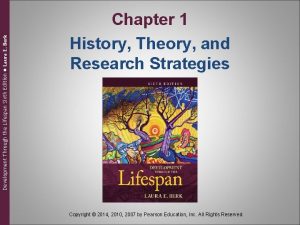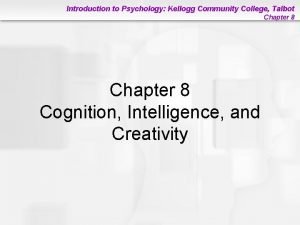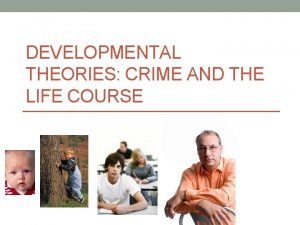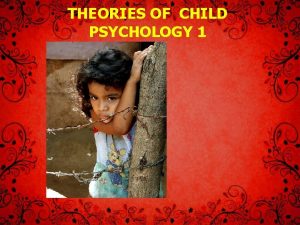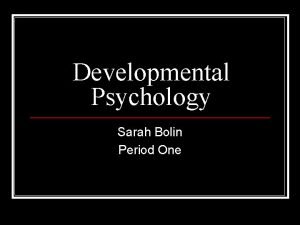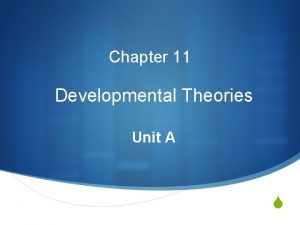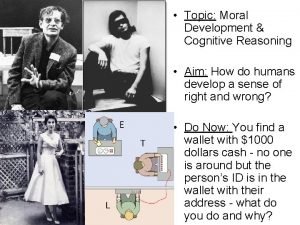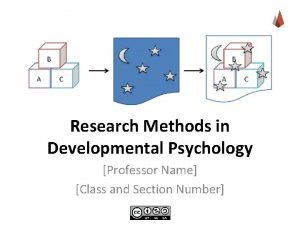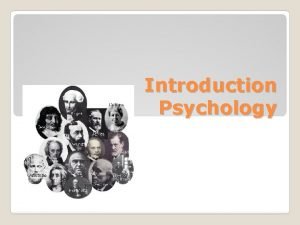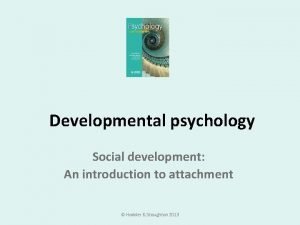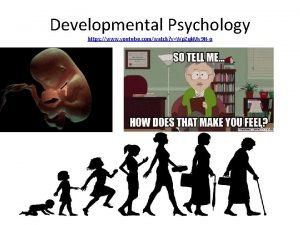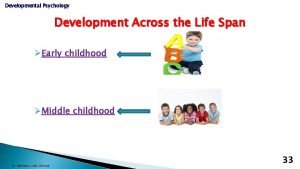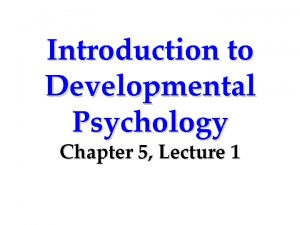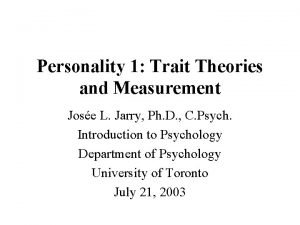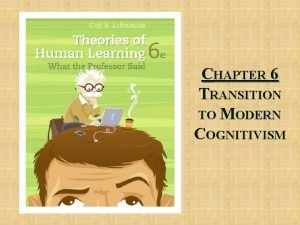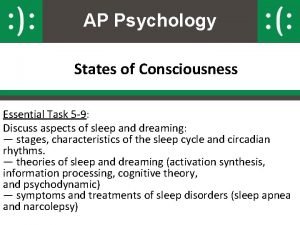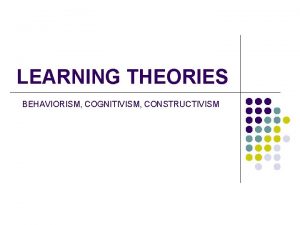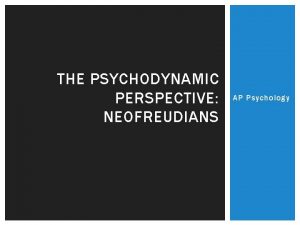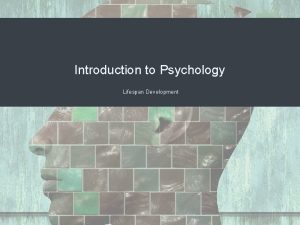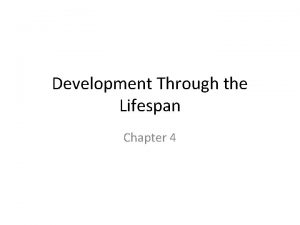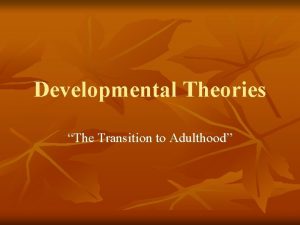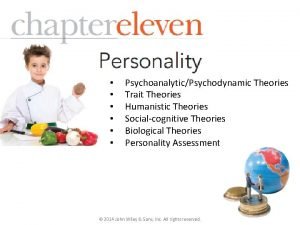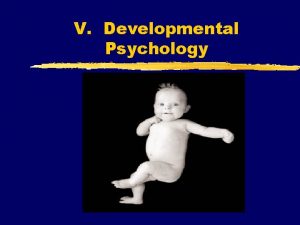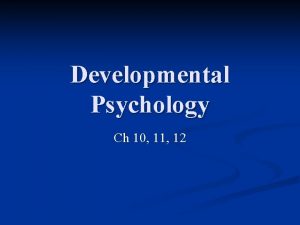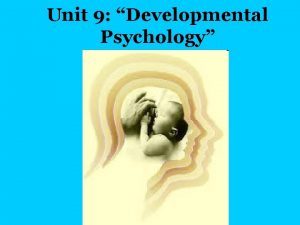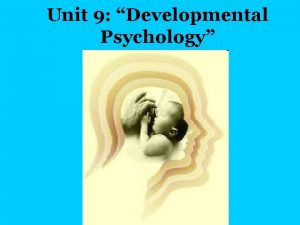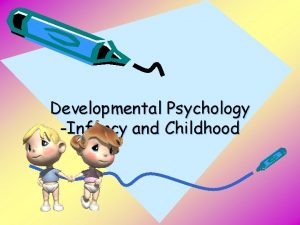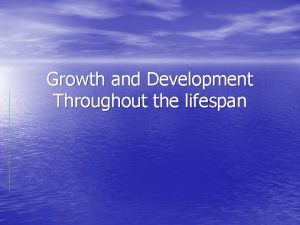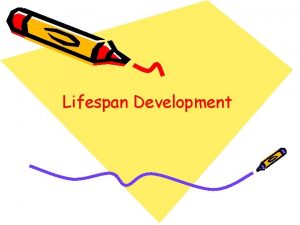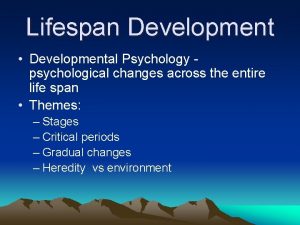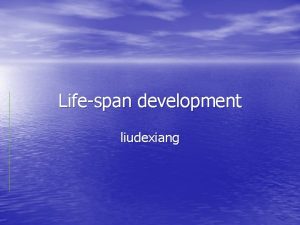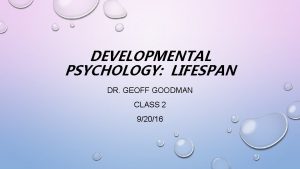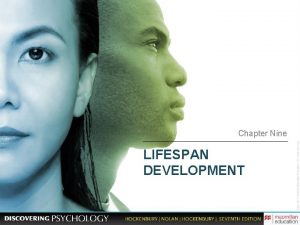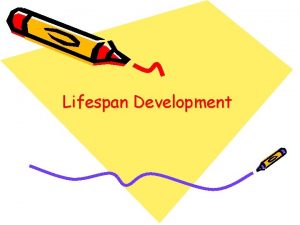CH 2 DEVELOPMENTAL THEORIES Psychology Through the Lifespan




























- Slides: 28

CH. 2 DEVELOPMENTAL THEORIES Psychology Through the Lifespan by Beyer & Lazzara

THE RELATIONSHIP BETWEEN THEORY AND RESEARCH ■ What is a theory? ■ ■ ■ An explanation Suggests what, how, or why Developmental context - explains change over time A guideline for research It is not a fact. Psychology Through the Lifespan By: Beyer & Lazzara

THEORETICAL CONSIDERATIONS FOR DEVELOPMENTAL THEORIES ■ ■ ■ Nature and nurture Progression of development - continuous or discontinuous? Active or Passive Psychology Through the Lifespan By: Beyer & Lazzara

THEORIES OF MOTIVATION Psychodynamic Theories

FREUD’S PSYCHOSEXUA L THEORY ■ ■ Freud: (b. 1856 -d. 1939) Hysteria, trauma, “talking cure” early childhood focus defense mechanisms Psychology Through the Lifespan By: Beyer & Lazzara

FREUD’S PARTS OF THE SELF ■ ■ ■ Psychology Through the Lifespan By: Beyer & Lazzara Id - pleasure Ego - reality, consciousness Superego - morals

PSYCHOSEXUAL DEVELOPMENT ■ Each stage has body part focus, development of self ■ oral, anal, phallic, genital ■ Id, then ego, then superego ■ If not satisfied may have fixation with part of body during that stage ■ Criticisms ■ Not scientific ■ Challenged by other theories Psychology Through the Lifespan By: Beyer & Lazzara

ERIKSON’S PSYCHOSOCIAL THEORY ■ ■ Student of Freud’s Ego focus and society expectations Father of Developmental Psychology 8 stages Psychology Through the Lifespan By: Beyer & Lazzara

ERIKSON’S FIRST FOUR STAGES ■ ■ Trust vs. Mistrust (infancy) Autonomy vs. Shame and Doubt (toddlers) Initiative vs. Guilt (early childhood) Industry vs. Inferiority (middle childhood) Psychology Through the Lifespan By: Beyer & Lazzara

ERIKSON’S LAST FOUR STAGES ■ ■ Psychology Through the Lifespan By: Beyer & Lazzara Identity vs. Role Confusion (teens) Intimacy vs. Isolation (early adulthood) Generativity vs. Stagnation (midlife adults) Integrity vs. Despair (late adults)

TEST YOURSELF ■ ■ Who is the father of developmental psychology? According to Freud, which part of the self are we born with? At what age do we establish a basic sense of trust, per Erikson? At what age do we ask ourselves if we have produced something of value, per Erikson? Psychology Through the Lifespan By: Beyer & Lazzara

BEHAVIORAL LEARNING THEORIES Focus on how we learn and emphasizes behaviors that can be seen rather than internal motivation

CLASSICAL CONDITIONING ■ ■ Ivan Pavlov Learning through association Feelings or emotions Pairing to be conditioned Psychology Through the Lifespan By: Beyer & Lazzara

EXPERIMENTAL STUDIES ■ Before conditioning ■ ■ ■ After conditioning ■ ■ Psychology Through the Lifespan By: Beyer & Lazzara Unconditioned stimulus (US) Unconditioned response (UR) Conditioned stimulus (CS) Conditioned response (CR)

DEPENDENT VARIABLES ■ ■ ■ Varies in response to what’s introduced Value depends on the IV Focus of the research Effect of IV on DV Psychology Through the Lifespan By: Beyer & Lazzara

IDENTIFY THE IV AND DV ■ ■ ■ “Smoking causes cancer. ” “Men commit suicide more frequently than women. ” “Stress declines with exercise. ” “Income increases with education. ” “Studying improves grades. ” “Education reduces prejudices. ” Psychology Through the Lifespan By: Beyer & Lazzara

EXPERIMENTS Advantages ■ ■ Establish cause and effect Conditions for establishing cause and effect: ■ ■ ■ IV & DV related IV comes first No outside cause Psychology Through the Lifespan By: Beyer & Lazzara Disadvantages ■ ■ Hawthorne Effect Artificial environment/Limited real world generalizations

CASE STUDY ■ ■ ■ Finding out as much as possible about a single case. A variety of techniques Advantages ■ ■ ■ Explore unusual situations Generate hypotheses Disadvantages ■ “confirmation bias” Psychology Through the Lifespan By: Beyer & Lazzara

SURVEY VS. INTERVIEWS ■ ■ Psychology Through the Lifespan By: Beyer & Lazzara Ask a standard set of questions to a sample of people Directly questioned by researcher with subset of questions (not strict script)

SURVEYS Advantages § Can reach many (telephone, mail, internet) Disadvantages ■ ■ Psychology Through the Lifespan By: Beyer & Lazzara Self-report Sensitive topics Requires careful wording Social desirability

INTERVIEWS Advantages ■ ■ Can further explain and probe Vignette Psychology Through the Lifespan By: Beyer & Lazzara Disadvantages ■ ■ Social desirability Takes more time and money

SECONDARY/CONTENT ANALYSIS ■ ■ Analyzing information that has already been collected Examples: ■ ■ ■ Census data Headlines in the news Themes in advertising products for boys and girls Psychology Through the Lifespan By: Beyer & Lazzara

SECONDARY/CONTENT ANALYSIS Advantages §Information already collected Disadvantages ■ ■ Psychology Through the Lifespan By: Beyer & Lazzara Poor quality data yields poor results Media may not accurately reflect behavior/attitudes

DEVELOPMENTAL DESIGNS Cross-sectional ■ Varied sample One time measure Change between groups ■ ■ ■ Longitudinal ■ Change within individuals ■ Cross-sequential ■ Varied sample ■ ■ Over time Psychology Through the Lifespan By: Beyer & Lazzara

DEVELOPMENTAL DESIGNS Psychology Through the Lifespan By: Beyer & Lazzara

REVIEW CHAPTER 2 KEY OBJECTIVES ■ Theoretical considerations: ■ ■ ■ Nature/Nurture, Continuous/discontinuous, Active/Passive Psychosocial: Freud Erikson Behavioral: Classical and Operant Conditioning Cognitive: Piaget and Vygotsky Ecological: Brofenbrenner Psychology Through the Lifespan By: Beyer & Lazzara

KEY TERMS FOR CHAPTER 2 • Freud theory • Piaget’s 4 stages • id, ego, superego • schema • Erikson’s 8 stages • Assimilation vs. accommodation • Classical Conditioning • Vygotsky’s theory • unconditioned stimulus, conditioned response • scaffold/guided participation • Operant Conditioning • Ecological Systems model • positive and negative reinforcement • discontinuous vs continuous • punishment • active/passive • theory • nature/nurture Psychology Through the Lifespan By: Beyer & Lazzara • Zone of Proximal development

THE ONE-MINUTE PAPER § What was the most important thing you learned during this class? § What important question remains unanswered? Psychology Through the Lifespan By: Beyer & Lazzara
 Development through the lifespan 6th edition
Development through the lifespan 6th edition The developing person through the life span 9th edition
The developing person through the life span 9th edition Concept of formation
Concept of formation Developmental theories of crime
Developmental theories of crime Latent trait theory criminology
Latent trait theory criminology Ego centerism
Ego centerism Developmental theories
Developmental theories Developmental theories
Developmental theories Sarah bolin
Sarah bolin Chapter 11 developmental theories
Chapter 11 developmental theories Initiative vs guilt
Initiative vs guilt Lawrence kohlberg developmental psychology
Lawrence kohlberg developmental psychology Research methods in developmental psychology
Research methods in developmental psychology Wilhelm wundt structuralism
Wilhelm wundt structuralism John bowlby attachment theory
John bowlby attachment theory Developmental psychology
Developmental psychology Devonte is a graduate student in developmental psychology
Devonte is a graduate student in developmental psychology Unit 3 developmental psychology
Unit 3 developmental psychology Psb ucf
Psb ucf Regression
Regression Animism examples psychology
Animism examples psychology Chapter 5 developmental psychology
Chapter 5 developmental psychology Personality definition
Personality definition 6 theories of psychology
6 theories of psychology Reciprocal determinism definition psychology
Reciprocal determinism definition psychology Ap psychology states of consciousness
Ap psychology states of consciousness Cognitivism theory
Cognitivism theory Interpersonal attraction psychology definition
Interpersonal attraction psychology definition Psychodynamic ap psychology
Psychodynamic ap psychology
